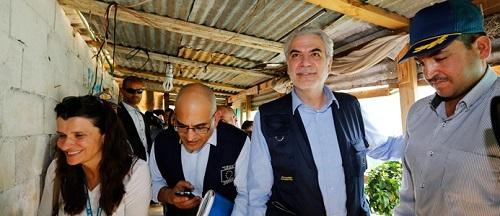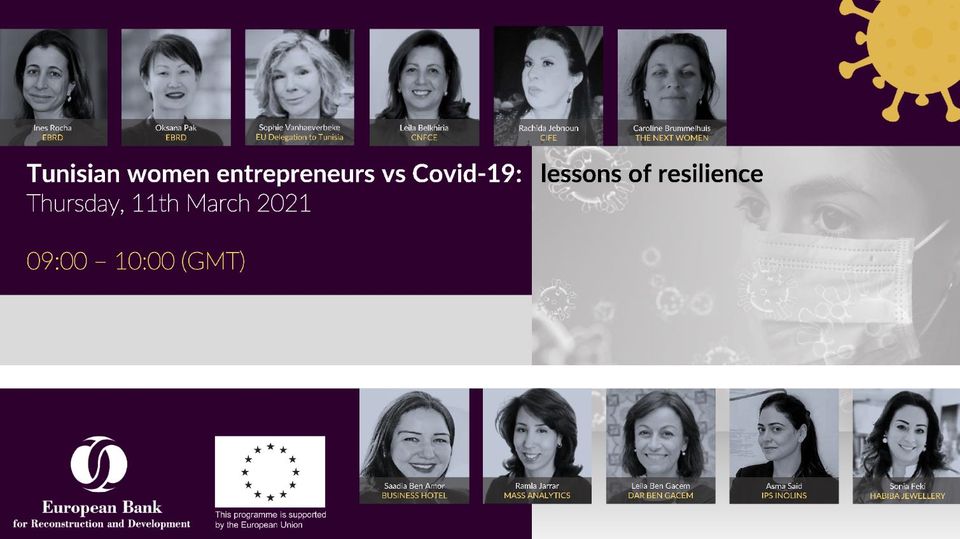EYES ON GREEN regional competition: who are the winning Switchers?
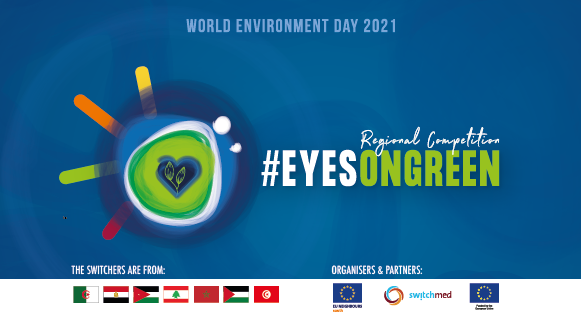
The closing ceremony of the EYESONGREEN regional competition took place online on Wednesday 3 June. Fourteen Switchers from seven countries of the Southern Neighbourhood region (Algeria, Egypt, Jordan, Lebanon, Morocco, Palestine, Tunisia) were in competition to defend their green entrepreneurial projects with a high environmental impact.
At the end of the ceremony, the names of the three winners were announced: Aya Sarsour Khateeb (Palestine), Besma Belbedjaoui (Algeria) and Younes Ouazri (Morocco).
Aya Sarsour Khateeb and her husband are the founders of Mnjm, an ecological Palestinian start-up that recycles household waste and transforms it into raw materials for factories. At the same time, the couple made it their mission to educate citizens about the risks of pollution and the positive impact of good solid waste management.
Besma Belbedjaoui founded the plastic recycling start-up, Plasticycle Algerie whose main activity consists of collecting plastic bottles which are then consigned, washed and then reduced to tiny pellets. They are then resold to companies which use them, in particular, in the manufacture of textiles or plastic products.
Younes Ouazri is the head of Ecodome, an ecological construction start-up which has developed an ingenious concept of earth-based eco-domes, combining tradition and modernity whilst complying with existing standards in Morocco and respecting the environment.
The EYESONGREEN regional competition is an initiative of the European Commission’s Directorate-General for Neighbourhood and Enlargement Negotiations (DG NEAR), the EU Neighbours South (EUNS) regional communication programme, and the SwitchMed initiative.
The Switchers is a community of inspiring green entrepreneurs and changemakers in the Mediterranean region, developed by SCP/RAC. It is also a place where entrepreneurs that share a common passion for the environment can meet. Switchers are green and circular businesses implementing eco-innovative solutions that contribute to sustainable and fair consumption and production models. They are active in a variety of fields, such as sustainable farming, green construction, sustainable textiles and cosmetics, eco-tourism, renewable energy, or waste management.
For more information :



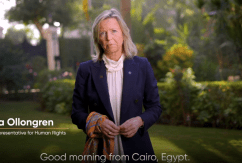








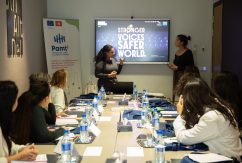
















 Syria
Syria 